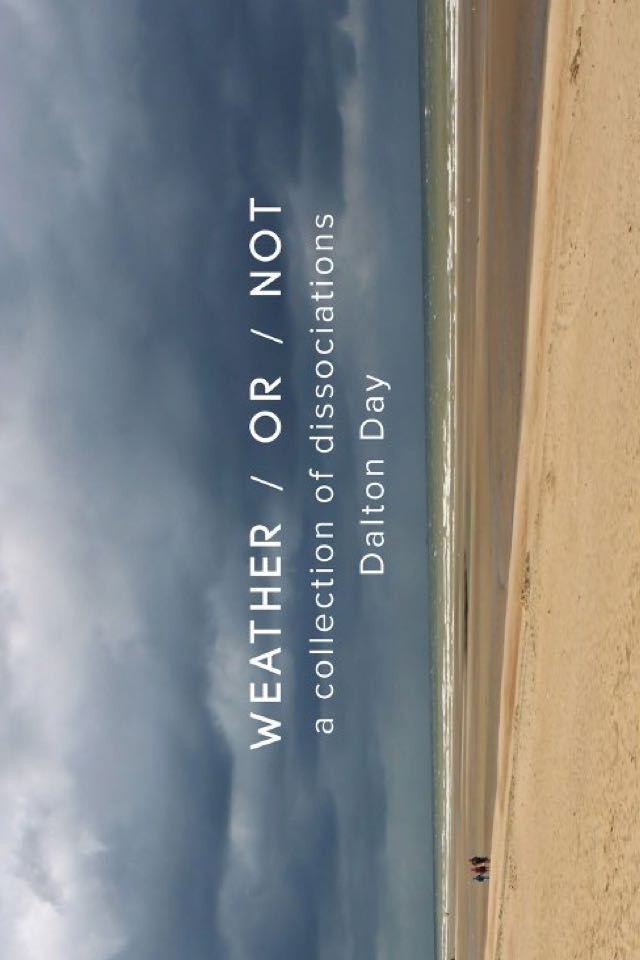Weather or Not
— Terry Abrahams
A pocket-sized publication, Weather or Not is described as a collection of dissociations.
It’s as simple as that, really, and just as effective. Taking the shape of prose poetry, these not-quite-dreams take place during the narrator’s waking hours, when moments slip between thought and time and become something else entirely.
Day’s ability to weave words is apparent in the minimalism found here. Each word is carefully selected, and each carry a necessary weight. Nothing is overlooked or overused. The dissociations, in this sense, often read like very carefully crafted short stories. There is the titular character (you), a place, a sight, a sound, a feeling. Even if conclusions are vague, there is a rising action, and a falling, a stop—sometimes slow, sometimes sudden. It creates an experience, so to speak.

Likewise, Day’s decision to write in second person, using that you as the driving pronoun in these poems, effectively brings the reader into these experiences. You—the reader—are intimately connected with the you of the narrator, whoever they may be. Perhaps you will read them as you, yourself, as I did—either way, as a reader, you are given a close and often uncomfortable look at these dissociations. Some are vague. Others feel entirely possible. Many are pleasant. Others are unsettling.
There are no page numbers, no author’s note, the only framing for this compact chapbook being the two quotes of praise that grace the first few pages. As complex as dissociation and the reasons for it may be, this little book keeps it bare and down to the bone of what it is: a moment where one is neither here nor there. Liminal space exists in nearly every one of these poems.
You are laying awake, wondering if there are deer coming out of the woods into your yard. If you get up to look, you could scare them off. You could also see something other than deer, something that could scare you. You need to get some sleep. Tomorrow is a big day.
In this dissociation, a lingering anxiety grounds, rather than removes, the reader/narrator. The deer and sleep are the anxiety—concrete, present, but unreachable. The liminal is everywhere, all around, strangely grounding, keeping the you in the bed in the bed entirely.
Above all else, Day’s writing is stark and honest. Here are images blurred around the edges. Here are moments one can only see via the mind’s eye. Here are events that did not happen at all, but were certainly real then and there, when time stopped, when the body stilled, when the mind wandered without warning. Here at the depth of thought, Day pulls us in, gently guides us through, and then lets go, allowing the reader room to breathe. This collection is left to be, as heavy as that being may, in fact, be.